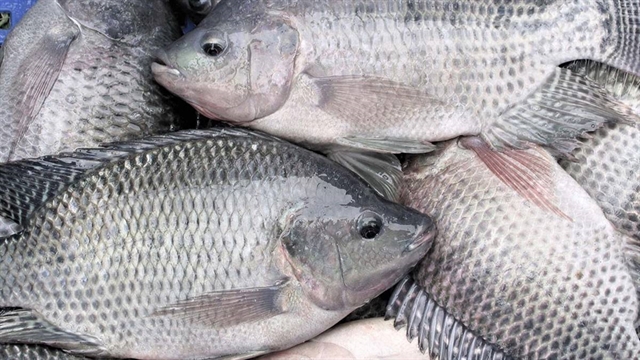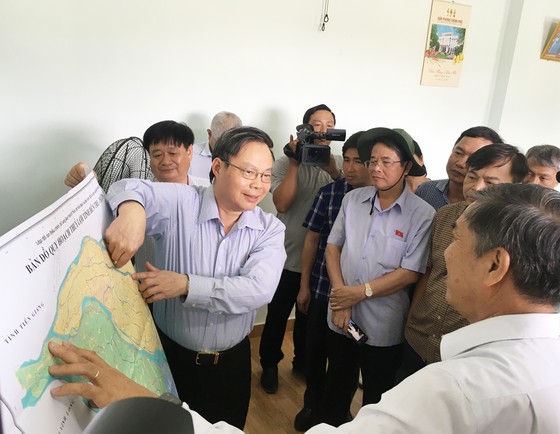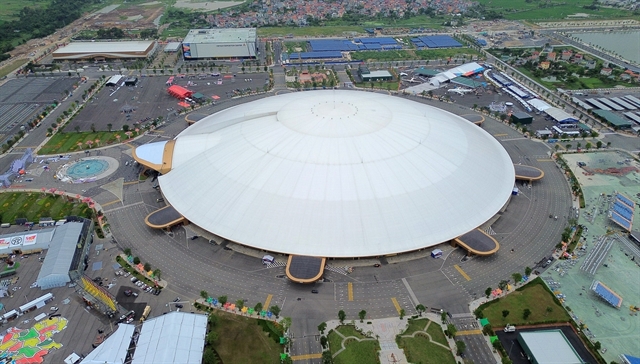 Society
Society


|
| A National Assembly delegation inspects plans for an irrigation system in Bến Tre Province. — Photo www.sggp.org.vn |
BẾN TRE — Bến Tre Province authorities have sought VNĐ250 billion (US$10.7 million) from the Government to build reservoirs to store freshwater and avoid a shortage due to drought and saltwater intrusion in rivers.
A National Assembly delegation headed by Vice Chairman Phùng Quốc Hiển last week met with province authorities to discuss water security, and drought and saltwater prevention, and went on a field trip to see the Kênh Lấp Reservoir and Kênh Lấp Water Treatment Plant in Ba Tri District and Ba Lai Dam in Bình Đại and Ba Tri.
To ensure there is adequate water for people’s daily use and agriculture, the province plans to build reservoirs with a capacity of 1.5 million cubic metres in coastal districts.
Nguyễn Hữu Lập, deputy chairman of the province People’s Committee, said the severe drought and saltwater intrusion in the 2019-20 dry season had seriously affected the province’s socio-economy.
The agricultural sector was severely impacted, and suffered an estimated loss of more than VNĐ1.6 trillion ($71 million).
Nearly 28,000ha of fruit trees, 1.2 million flowering and ornamental plants, 600ha of seedlings, 168ha of crops, and more than 3,000ha of aquaculture area were affected.
The saltwater also affected other sectors such as industry, construction, tourism, and processing.
The double impact of the drought and the Covid-19 pandemic caused negative GDP growth for the province in the first half of the year, Lập said.
The province has huge volumes of groundwater and surface water, but most of it was affected by the saltwater since it is very close to the sea and has four large estuaries.
The main sources of freshwater are rains and rivers.
This leads to a lack of water during the dry season and excess water during the rainy season, Lập said.
Hiển said the province is one of the worst affected by the impacts of climate change in the Cửu Long (Mekong) Delta.
He called on the province to co-ordinate with the Ministry of Agriculture and Rural Development and other ministries and agencies and submit a detailed report to the National Assembly for consideration.
It is necessary to draw up general planning for irrigation systems and short-term strategies and long-term solutions for prevention of saltwater intrusion, he said.
Protecting water from pollution and changing farming methods to suit the current situation are also imperative, he added. — VNS




